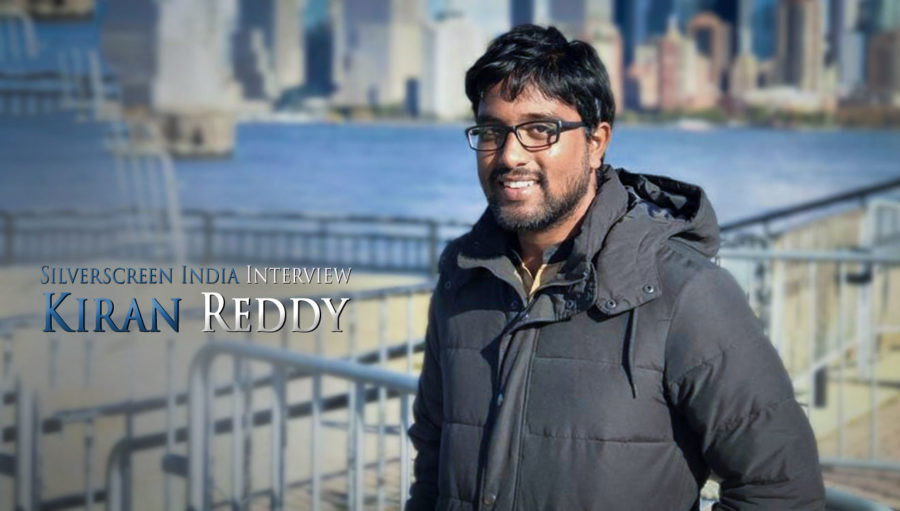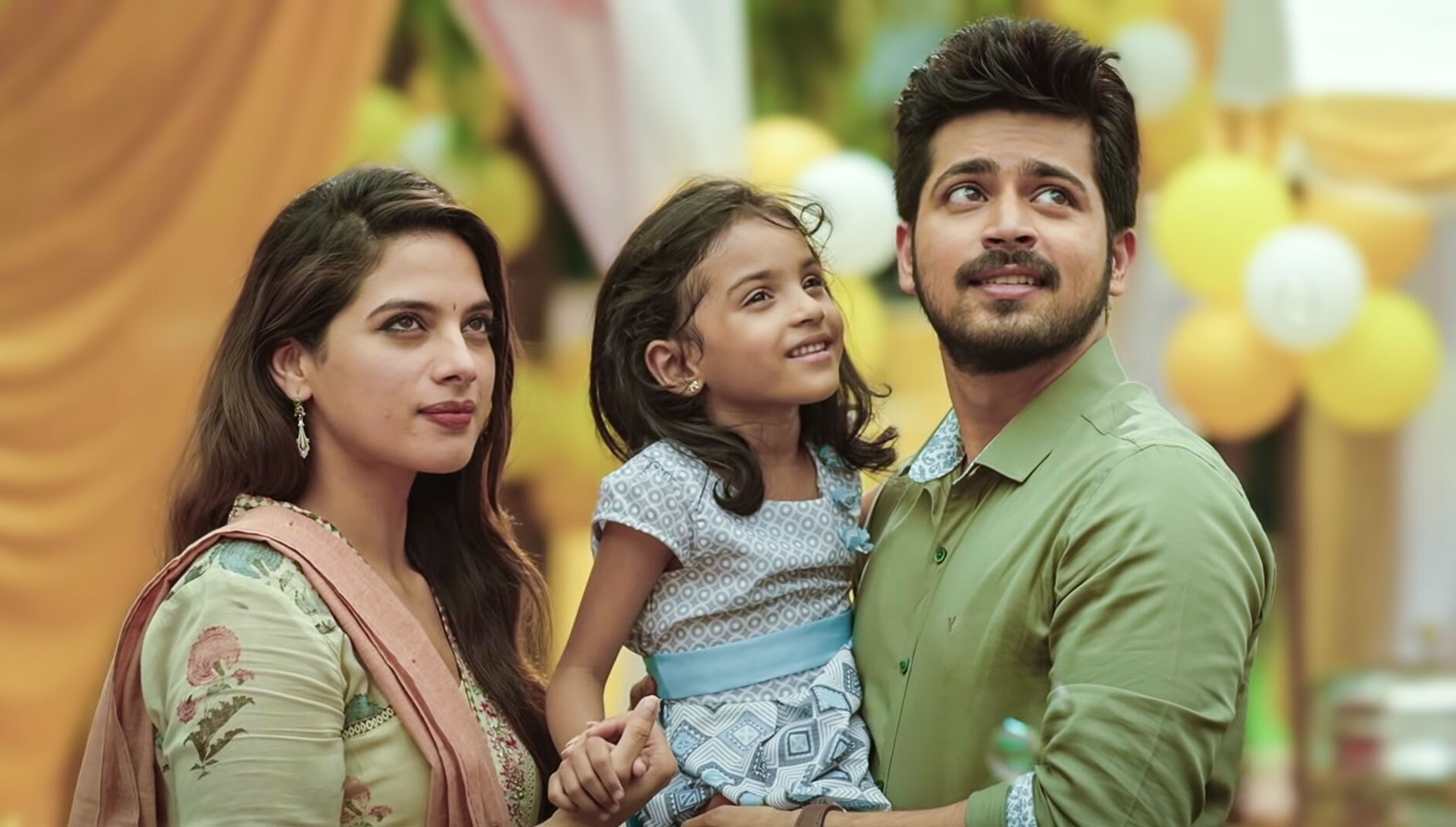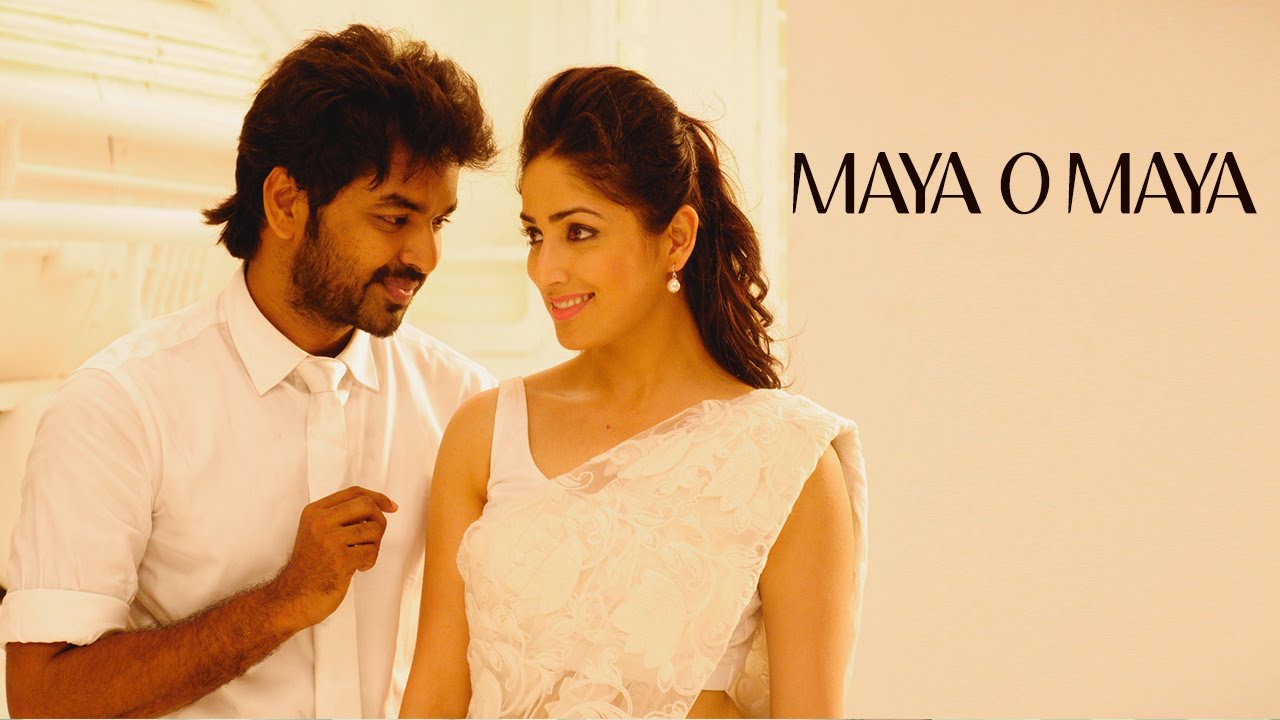Amazon Prime Video’s upcoming Telugu thriller Gatham has caught attention for its impressive stunning visuals and background score. What makes it more interesting is that a group of young US-based students and IT professionals got together to make this film. Directed by IT professional Kiran Reddy, Gatham stars newcomers like Bhargava Poludasu, Rakesh Galebhe, Lakshmi Bharadwaj, and Poojitha Kuraparthi in lead roles.
In an interview with Silverscreen India‘s Shrija Ganguly, the director walks us through journey of making the film- conceiving the idea of the film in 2012 to the final cut in 2019- and how all of them juggled the film and their families.
“What really helped us was a strong will power. There were instances where shooting had to be stopped, no matter what, and a lot was at stake, or, quit the filming location after filming for 10 days and 10 more days of filming were left. We were never bogged down by all these factors. To keep it simple, you will definitely go through a phase of , ‘hey, we should call it quits’, but I was not the only one,” says Reddy.
Gatham is an extension of one of your short films. Which one is it and why did you feel the need to make a feature film out of it?
When we made the short film, we never knew that that would have legs to be transformed into a feature film. But we happened to attend a film festival where we premiered the short film and directors like Harish Shankar, who directed Pawan Kalyan’s Gabbar Singh, and Merlapaka Gandhi watched it and boosted our confidence by talking to us personally and showering us with praises. They were really impressed and found the concept to be pretty unique. And that coming from filmmakers who are proven in the industry, filled us with faith. That’s when we started travelling with the movie. We were doing a lot of other short films but in hindsight, I always knew that this is how I was going to debut.
It goes back to 2015, but apart from the core concept, it is in no way related to the short film. It is totally different with lots of layers and emotions. It is like apples and oranges. Plus, the span is huge. I will definitely attribute it to the short film.
What were some of the obstacles in extending a short film into a feature film?
We faced inner challenges during the stage of pre-production because the logistics expand multifold. Because in our case (the short film), it was just my friend Harsha and I. But in case of Gatham, our team expanded to 12 or 13 people, including the cast and crew. Even though that was not huge in comparison to the normal filmmaking process, it still was a huge jump. Managing people is 50% of the filmmaking process and the rest 50% is the creative part of it. I had to treat them very carefully because they are different brains constantly trying to push the envelope. Obviously they want to get the best output from the movie but we learnt how to manage people.
What does Gatham exactly stand for?
The reason I chose this title is because the past plays a key role. It drives the entire movie. Not just from the story perspective but also from the characters’ perspective- what one’s past means to someone else.
Is there an issue that the film is central to? This is in relation to the scene of a missing girl’s case with which the trailer opens.
It is totally fictional and is in no way related to any of my earlier works. We did not pick anything else apart from the element of past.
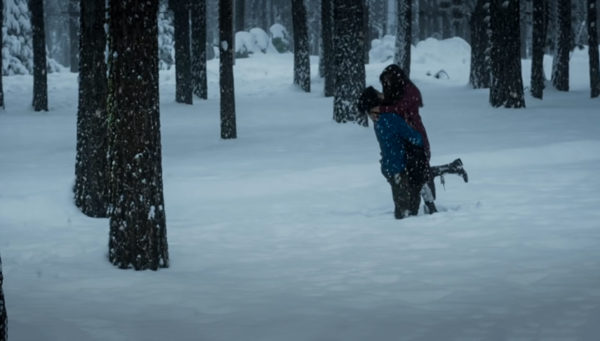
When was the film shot? And how long did it take?
We filmed it in December 2018 and it was a 17-day-long schedule. Because we all are working professionals, coordinating was not an easy thing. It was less but whatever we achieved, and whatever you will be watching on screen is a result of excellent planning and proper execution during that window. We did nine additional days for other schedules, but the longest schedule was the 17 days and on an average, we worked for 18 to 20 hours a day and sometimes we even went on for 26 hours.
For that, we definitely didn’t work as a team but we worked as a family. For example, if someone was acting, the others would be running the show behind the camera holding the lights, etc. Nobody had any inhibitions. Everyone did multiple jobs. Eventually, we wanted to tell a great story. But how do we do that with our limited logistics? How can we get more creative? By putting that extra hour.
Hopefully, this will inspire upcoming filmmakers to tell great stories even with limited resources.
The entire film was shot in 26 days.
The cast and crew of the film is really small.
We had an ensemble cast. Since the movie starts and ends in different zones, we had to explore lots of locations. There were about 50-60 actors, including the junior artists. But the crew remained pretty much constant, ranging from six to eight people, including myself, Harsha and my wife, who took care of the production design of the show. The technical crew comprised five people, mostly.

Photo Credit: Amazon Prime Video
Was it tough to pull off an entire feature film with a limited crew? How difficult was it?
It was definitely tough to do pre-production and not that tough while executing it. Because we knew that our USP lay in the production value and strong narration. I can’t sell a film that has newcomers. So, where we could excel, was in the making. But how do we get creative? We had to do extensive research during pre-production; figure out how we could capture a location in a cinematic fashion that would look like a big production house’s. You have to have a clear vision, clarity of thought, and communicate it to your director of photography and other technicians and they will enhance your vision. That’s what happened with Gatham.
Did you face any problem with budget restraints?
When we decided to make Gatham, we always had a practical approach to it. We knew we cannot go overboard. Having said that, we had never anticipated that it would go on to a platform like Amazon (Prime Video), which has millions of subscribers worldwide. We cut down on wherever we had to and still deliver that quality that the audience would anticipate. During this process, we met a lot of people, especially Srujan from S Originals, who is also one of our producers. He happened to watch the rushes and then he decided to back the film. He saw a spark in our filmmaking and thought that we will go places next two or three years or so. That’s how it got bigger everyday and today we are here.
Could you give some instances of where you had to cut down?
For example, to run the set you need at least four or five production assistants catering to the needs of the cast and the crew because they are always working tirelessly. But I didn’t have the budget to afford them. So, during their breaks, the actors stepped in as production assistants. They would go grab the food or set up the lights and camera lens. That’s how we cut down on most of our costs. The crew members did not take any remuneration because they believed in us and helped us a lot. I used that money to narrate the film in a better way.
So, everyone on the cast and crew was known to each other? Did the film start out as a collective thought or was built organically, starting from you and then including the others?
Before we ventured into Gatham, we (the lead cast) were all traveling together as we go way back. We (Harsha and I) started this in 2012 and then slowly people joined in as they believed in our vision and conviction. With each short film, we added more people to our close-knit group. It was a job made easier because of our common vision and common interest in filmmaking. So, when I decided to venture into a feature film, I knew whom to pick. I did not have a lot of challenges in assembling them. It was a process that was built over the years.
What is the reason behind the two-year gap, between filming and the film’s release?
As I mentioned earlier, the filming took another nine days (after the 17-day long schedule). We had to do three more schedules and assembling everyone again for even three days was pretty difficult owing to their daily lives, responsibilities, and professions. So, we had to spread those schedules across five more months and eventually, we were able to finish the filming in May 2019.
From there on, post-production took around eight or nine months and we were ready with our first copy in February 2020. And then the pandemic struck and we had to wait all these days. Thanks to Amazon (Prime Video), we are coming on November 6. On paper, it definitely looks like a two-year waiting period but it was just the situation that delayed the release.
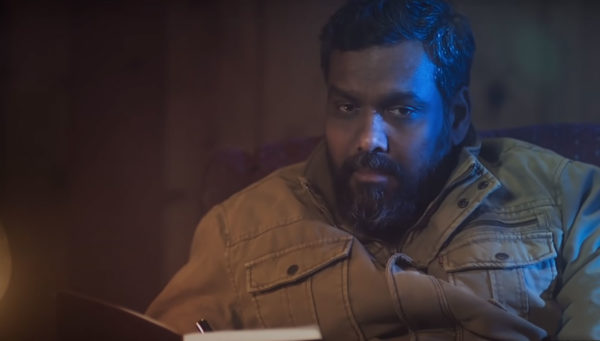
So, you and your team were juggling Gatham and your day-to-day lives?
Yes, indeed. Most of us, if not everyone, are software professionals and work with the IT industry here (in the US). We could not quit our jobs, of course. All we could do was take some vacation and make this happen. Whenever we used to work, we would switch on our software brains from 9 am to 5 pm, and after that get into the world of cinema and have lots of creative juices flowing together. It has been a roller coaster ride. It was a fun process, though. We have the satisfaction of achieving something as well as doing justice to our responsibilities and family commitments. It is a complete feeling. It’s not really like we had to sacrifice anything.
Hopefully, this will set an example for those who think that we have to quit something to achieve what we are really passionate about. There are ways you can work around and not having to part with your near and dear ones.
Filmmaking is a tedious process and requires time and attention. And then you come and prove the contrary. So, was there a time when you felt like you should quit or you can’t go any further?
It is definitely a tedious process if you don’t enjoy it. Unless you are committed to creating a movie, there is no point that you will even try to make an attempt. It is going to be gruelling unless you know what you are in for.
Having said that, not always did we enjoy it. No matter what, we have our saturation points. Especially, for makers like us, Indie style guys who have nothing in control and have to do a lot of run-and-gun filming. A lot of situations won’t support you. But still, you have to pull it off. What really helped us was a strong will power. There were instances where the shooting had to be stopped no matter what and a lot was at stake, or, quit the filming location after filming for 10 days and ten more days of filming were left. We were never bogged down by all these factors.
Could you share a couple of instances (when the shooting had to be stopped)?
So, the first one being filming for 10 days in a cabin that we rented. There are a lot of cabin shots in the trailer, including the first shot. We filmed there but did not have any filming license. Since we were a crew of six or seven, we thought that we could pull it off. And then after 10 days, a police officer comes and asks for our licenses. He verified to make sure that all of us were above 18 and then left the location. We were all confused but we went ahead with the filming. And the lady who manages this rental property crashes into the cabin and starts counting down from 10 to 1. She wanted us to quit the location because she thought that we were doing some adult-filming. That happened because one of the neighbours did not like what we were doing and then complained saying that we were doing adult-filming. Then we had to show them the footage, rushes and explain to them what really was at stake if we quit the premises. They saw what we shot and were really impressed. They were suprised with the way we shot the location so beautifully. It was kind of marketing their cabin as well. We lost a day, and out of 17 days if we lost a day it was pretty tough.
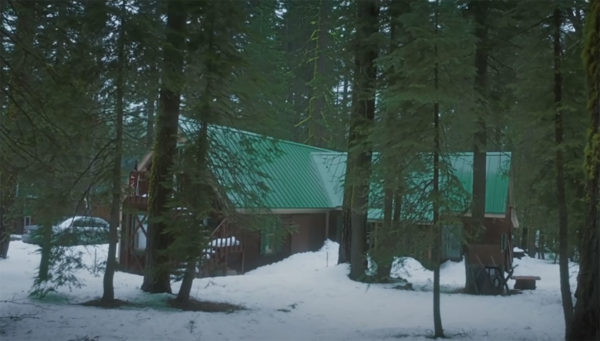
The second incident was when we filmed for straight 26 hours and everyone was hungry and exhausted. So, we called for a lunch break and came back to our accomodation. We were having lunch when we realised that we had forgotten a lens box at the location. We went back to find out that it was missing. It was worth almost Rs 1 crore. And imagine our scale of production and how much it meant. Luckily, we had another set of lens. Here is where the will power comes into picture. We decided to focus on finishing the film and went ahead and finished it. When we went back to the same location for one last shot, a guy came and said, “hey, did you guys lose a lens box? Because I found it and here it is”. It again comes back to will power. What really was trying to pull us down, eventually worked in our favour. It’s not luck or fortune but will power.
How were music composer Sricharan Pakala and cinematographer Manojh Reddy brought on board?
So, when I was done with the story, I had the vision that it has to be someone as creative as Manojh. We started scouting for people. I had my own limitations but I needed someone who could do justice. Manojh was, luckily, graduating from a film school during that time and he did a lot of fantastic short films and I happened to watch his reel. I met him and narrated the story and that’s how it all started.
Even with Sricharan Pakala, I somehow got his connection. I was listening to the album of Goodachari and decided to have him on board. Then again I narrated the story to him and he was convinced. So, in both these cases, they didn’t have to trust me because I am a newcomer. They trusted the story. That inspired them to come up with creative ways to elevate my vision and I must say that they enhanced it by at least twice or thrice.
How did Prime come on board?
We were gearing up for a theatrical release in March and made a promo for the public. When the pandemic struck, we were in a confused state. We didn’t know how long it was going to be that way. People started talking about one month and then two months. And we were swept through our feet without getting noticed. But thanks to (Amazon) Prime (Video), they were looking for content-driven movies and then when they watched the teaser and the promo, they were really impressed. They wanted to watch the film once it was ready and it took us about four months to finish it. Then we happened to show them the entire first copy in June or July. That’s how it all started rolling.
They liked the movie. They wanted to support youngsters irrespective of us being newcomers. They thought, “hey, you guys need as much reception as any other big film goin into the market. We will back you and this will inspire more storytellers to come”.
Do you feel that the reception is an outcome of the recent phenomenon of regional films in India making a mark for themselves and the flourishing of OTT platforms?
Definitely, a very big reason. The digital transformation that we have been going through right now, thanks to the pandemic, has played a key role in Gatham being acquired by Amazon Prime (Video). Having said that, there are hundreds of films that are flocking to the OTT platforms and Amazon (Prime Video) is a big player. But what matters is the content. Why we stood out from the rest is because of the quality of filmmaking. We have lots of technology and tools at our disposal compared to a decade ago. How do we use them to tell great stories, makes us stand out from the rest.
Did you consider releasing your film on an OTT platform or did you plan for a theatrical release?
Personally, I was going through a dilemma because I was already invested into this for almost two years. But thanks to the producers, they were trying to get his movie out. So, they tried to market the movie. Definitely that happened but what really impressed us is the way in which Amazon (Prime Video) dealt with everything- starting from the feedback to the movie to positioning and marketing the film.
What are your expectations from Gatham?
Recommended
I want people to watch the movie, especially because it belongs to a thriller sub-genre. I am sure you will be taken by surprise with the kind of filmmaking we have in store for you. What I would request is, do not skip even a frame, especially the first 15 minutes. This is a 1 hour, 41 minutes and 37 seconds-long movie. Give it some time. The actors are pretty new. So, you won’t know how they will react thrown into a situation. Once the characters are established, I am sure that you are in for a ride.
So, do watch the movie. Encourage filmmakers like us because we have great stories to tell. And even if you don’t like it, drop us a message or leave us a comment in a constructive way so that we can improve and come up with greater stories in the future.
***
Gatham will be streaming on Amazon Prime Video from November 6
